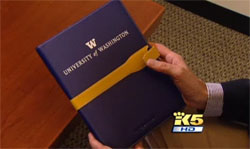 A KING-5 Television report on the UW CSE Kindle DX pilot project. UW – Computer Science & Engineering and the Foster School of Business – is one of seven universities participating in an educational pilot project to understand the strengths and limitations of electronic textbooks. See the TV news video here. Learn more about the UW CSE Kindle DX pilot project here. Read more →
A KING-5 Television report on the UW CSE Kindle DX pilot project. UW – Computer Science & Engineering and the Foster School of Business – is one of seven universities participating in an educational pilot project to understand the strengths and limitations of electronic textbooks. See the TV news video here. Learn more about the UW CSE Kindle DX pilot project here. Read more →

“UW grad students trade textbooks for Kindles”
Cloudera in the news!
 Cloudera is a cloud computing company founded by UW CSE alumnus Christophe Bisciglia, who while working at Google created UW’s highly-regarded cloud computing course, the first in the nation. On-leave UW CSE graduate student Aaron Kimball was the company’s first employee, and UW CSE professor Ed Lazowska serves on the company’s technical advisory board.
Cloudera is a cloud computing company founded by UW CSE alumnus Christophe Bisciglia, who while working at Google created UW’s highly-regarded cloud computing course, the first in the nation. On-leave UW CSE graduate student Aaron Kimball was the company’s first employee, and UW CSE professor Ed Lazowska serves on the company’s technical advisory board.
A post on the New York Times Bits blog on Monday covers Doug Cutting’s departure from Yahoo to join Cloudera. Cutting created Hadoop, an open-source software framework used to manipulate large volumes of data. (Cutting’s collaborator during the early stages of Hadoop, and on a predecessor system, was Mike Cafarella. Mike – a consultant to Cloudera – just completed his Ph.D. at UW CSE and is joining the EECS faculty at the University of Michigan. Mike is mentioned in the New York Times blog post.)
Read the full post here. Read more →
Project Trident
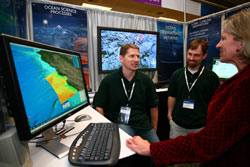 For more than two years, Microsoft Research and oceanographers have worked to develop Project Trident, an open-source “scientific workflow workbench,” which compiles, crunches and spits out scientific data in ways that make large-scale research findings easy to share, visualize, and replicate. It’s highly extensible. The Collaborative Ocean Visualization Environment (COVE), an extension developed by UW CSE graduate student Keith Grochow, lets scientists visualize their findings on a Google Maps-like atlas of the ocean floor.
For more than two years, Microsoft Research and oceanographers have worked to develop Project Trident, an open-source “scientific workflow workbench,” which compiles, crunches and spits out scientific data in ways that make large-scale research findings easy to share, visualize, and replicate. It’s highly extensible. The Collaborative Ocean Visualization Environment (COVE), an extension developed by UW CSE graduate student Keith Grochow, lets scientists visualize their findings on a Google Maps-like atlas of the ocean floor.
Read the full SeattlePI.com piece here. Read more →
“Outstanding Student Paper” award for Vanish
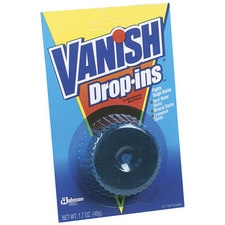 UW CSE graduate student Roxana Geambasu and undergraduate student Amit Levy have received the Outstanding Student Paper Award at the 18th USENIX Security Symposium for their paper “Vanish: Increasing Data Privacy with Self-Destructing Data.” Vanish has received widespread attention; see some links here and here. Learn more about Vanish here. The work was co-advised, and the paper co-authored, by UW CSE faculty members Yoshi Kohno and Hank Levy.
UW CSE graduate student Roxana Geambasu and undergraduate student Amit Levy have received the Outstanding Student Paper Award at the 18th USENIX Security Symposium for their paper “Vanish: Increasing Data Privacy with Self-Destructing Data.” Vanish has received widespread attention; see some links here and here. Learn more about Vanish here. The work was co-advised, and the paper co-authored, by UW CSE faculty members Yoshi Kohno and Hank Levy.
CS4HS 2009
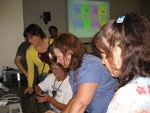
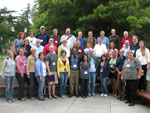
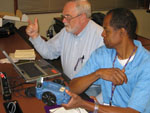 August 6-8 marked the third offering of CS4HS at the University of Washington, a computer science workshop for high school teachers of math and science.
August 6-8 marked the third offering of CS4HS at the University of Washington, a computer science workshop for high school teachers of math and science.
CS4HS is offered jointly by the University of Washington, Carnegie Mellon University, UCLA, the University of Texas at Austin, and Western Oregon University, and sponsored by Google. This year, at the UW offering, more than 30 teachers spent 3 days exploring topics such as synthetic biology, cryptography, computational thinking (using CS Unplugged), debunking stereotypes, careers in computing, visual programming using Squeak, robotics, recursion, and computing for individuals with disabilities.
 The UW CS4HS web page, including curricular materials, is here. Photos from this year’s workshop are here. Read more →
The UW CS4HS web page, including curricular materials, is here. Photos from this year’s workshop are here. Read more →
UW CSE’s Daryl Hansen in International Olympiad in Linguistics
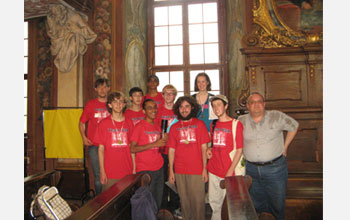 A news post by the National Science Foundation features the strong performance by U.S. high school students at the International Olympiad in Linguistics in Wroclaw Poland, including incoming UW CSE freshman Daryl Hansen. Daryl writes: “I heard about the North American Computational Linguistics Olympiad from one of my teachers, and went with one of my friends to go compete in it in March, since it sounded interesting. In the second round, I ended up 4th in the country, which put me in the top 8 that the organizers would then take to Poland for the ILO. We had a few months of weekly practice sessions over Skype, and then we got a free weeklong vacation in Europe that involved us taking some linguistics tests. So, yes, it was amazing to be there at all. I didn’t have much prior experience with linguistics or computational linguistics, but this and the NACLO made me a lot more interested in them both.”
A news post by the National Science Foundation features the strong performance by U.S. high school students at the International Olympiad in Linguistics in Wroclaw Poland, including incoming UW CSE freshman Daryl Hansen. Daryl writes: “I heard about the North American Computational Linguistics Olympiad from one of my teachers, and went with one of my friends to go compete in it in March, since it sounded interesting. In the second round, I ended up 4th in the country, which put me in the top 8 that the organizers would then take to Poland for the ILO. We had a few months of weekly practice sessions over Skype, and then we got a free weeklong vacation in Europe that involved us taking some linguistics tests. So, yes, it was amazing to be there at all. I didn’t have much prior experience with linguistics or computational linguistics, but this and the NACLO made me a lot more interested in them both.”
Read the NSF post here. Read more →
“Vanish” featured by NSF
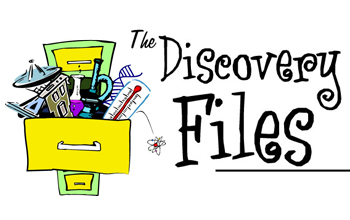 UW CSE’s “Vanish” project is featured by the National Science Foundation’s “The Discovery Files” podcast:
UW CSE’s “Vanish” project is featured by the National Science Foundation’s “The Discovery Files” podcast:
“I’m Bob Karson with ‘The Discovery Files’ – new advances in science and engineering from the National Science Foundation.
“Getting data onto the Internet is one thing; the real trick may be getting rid of the data. I mean when you write an extremely sensitive e-mail or chat message, you really have no idea where that information could turn up may be even years later.
“University of Washington researchers have developed a system for making things like web-based e-mails, Facebook posts and other sensitive data have a true expiration date. To make the data ‘disappear’ from the face of the earth – never to be retrieved by anyone …”
Listen to the full podcast here! Learn more about Vanish here. Read more →
CSE’s Ed Lazowska and Oren Etzioni on NPR
 A KUOW (Seattle NPR) segment on new directions in information technology, featuring UW CSE professors Ed Lazowska and Oren Etzioni. Topics include robotics, mobile computing, entrepreneurship, much more. Download the 20-minute segment here. Read more →
A KUOW (Seattle NPR) segment on new directions in information technology, featuring UW CSE professors Ed Lazowska and Oren Etzioni. Topics include robotics, mobile computing, entrepreneurship, much more. Download the 20-minute segment here. Read more →
“McGraw-Hill Education and Amazon Expand Strategic Alliance to Include Higher Education Content on Kindle and Kindle DX”
“‘The Kindle DX enables our students to access their course content anytime, anywhere,’ said Ed Lazowska, professor of computer science & engineering at the University of Washington. ‘We look forward to seeing how the device affects the engagement of both students and faculty in the educational experience.'”
Full article here. Read more →
“Meet the ‘Quantum Pontiff'”
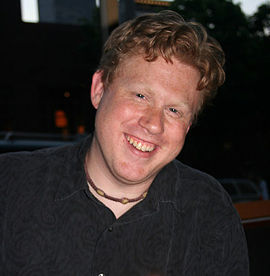 University Week highlights the widely-read “Quantum Pontiff” blog, authored since 2003 by UW CSE professor Dave Bacon.
University Week highlights the widely-read “Quantum Pontiff” blog, authored since 2003 by UW CSE professor Dave Bacon.
“Q: What is its purpose and who is its intended audience?
“A: My number one purpose is to slow down my fellow researchers. Every time I spend a few minutes writing a blog post, thousands of others spend a few minutes reading the post. Many of those are my fellow researchers in quantum computing.”
Read the article here. Even better, follow the Quantum Pontiff blog here! Read more →
